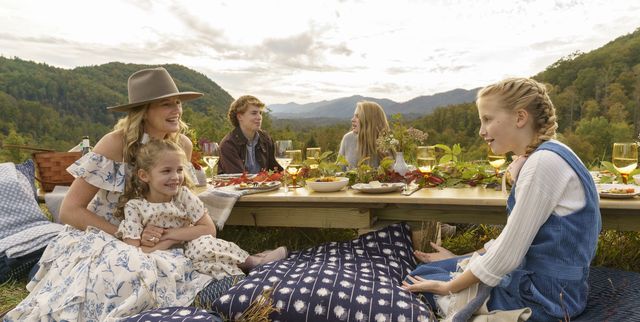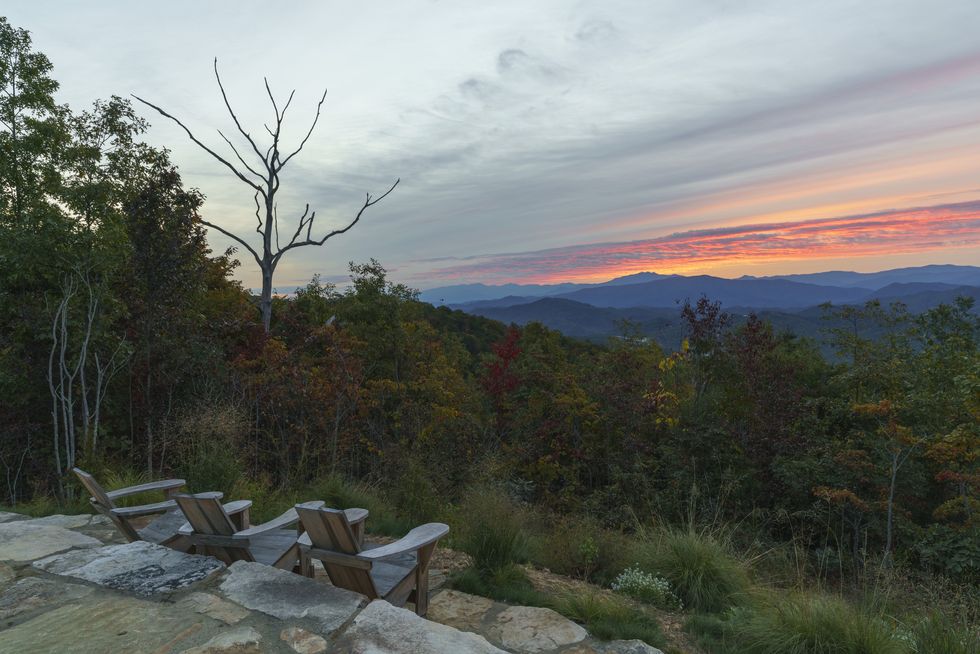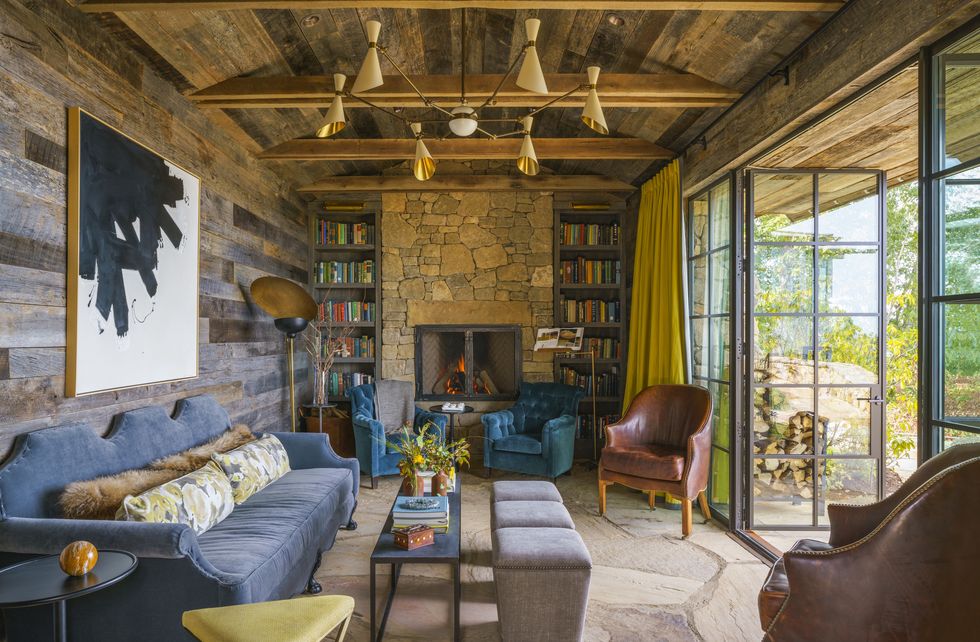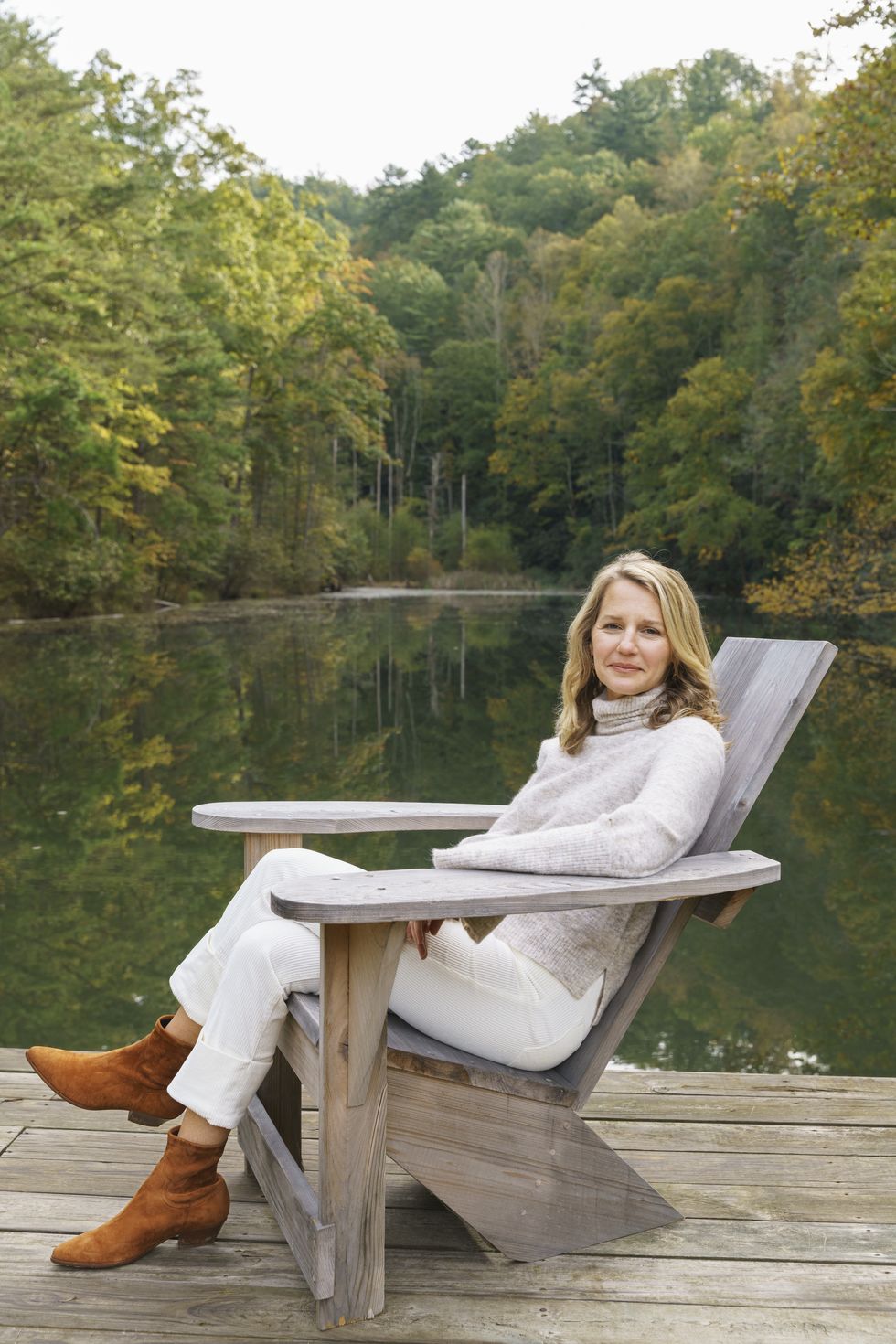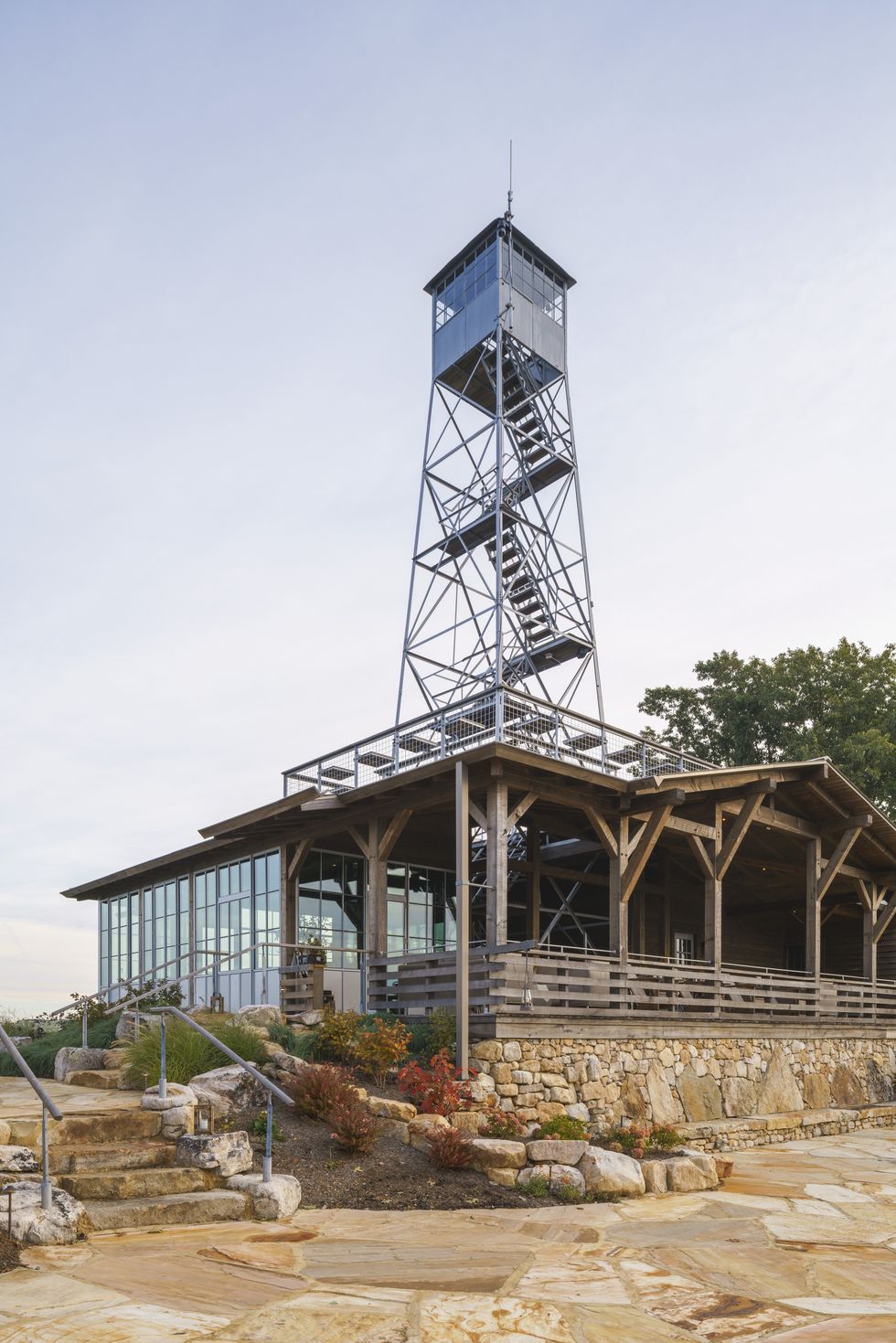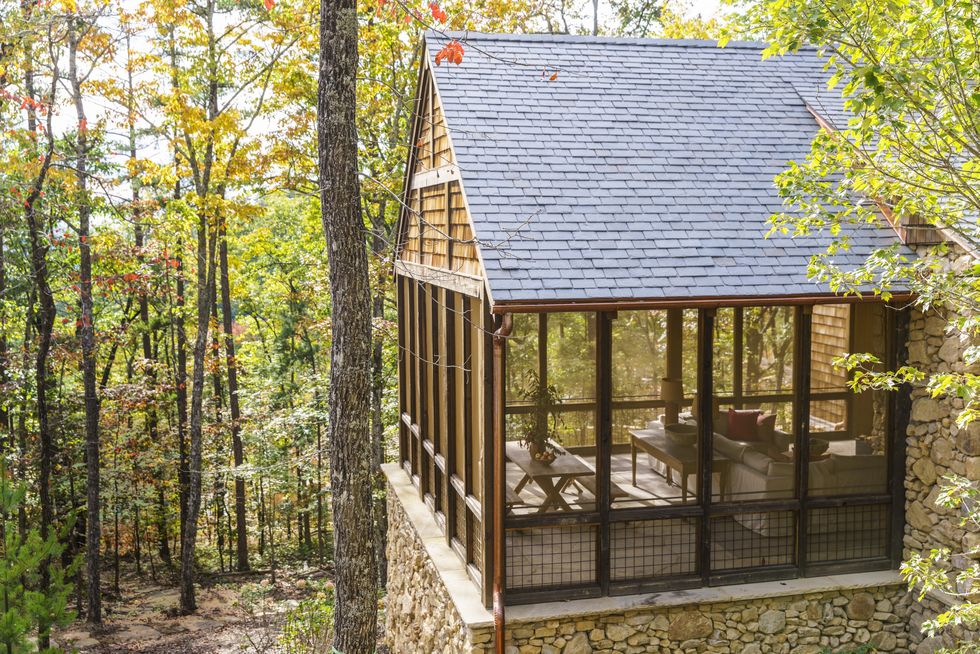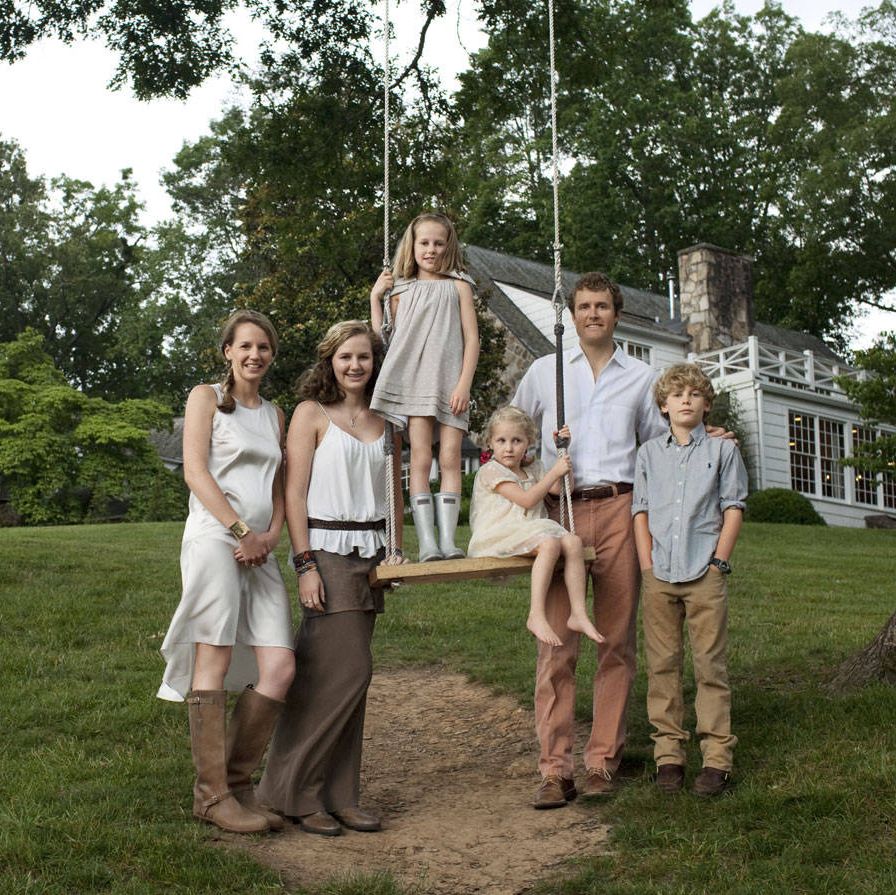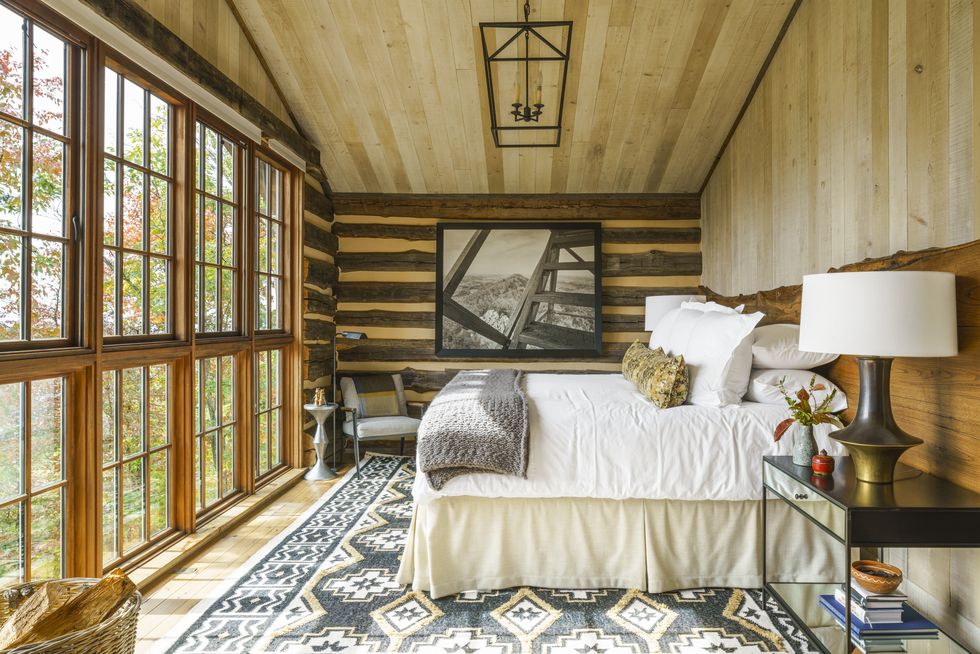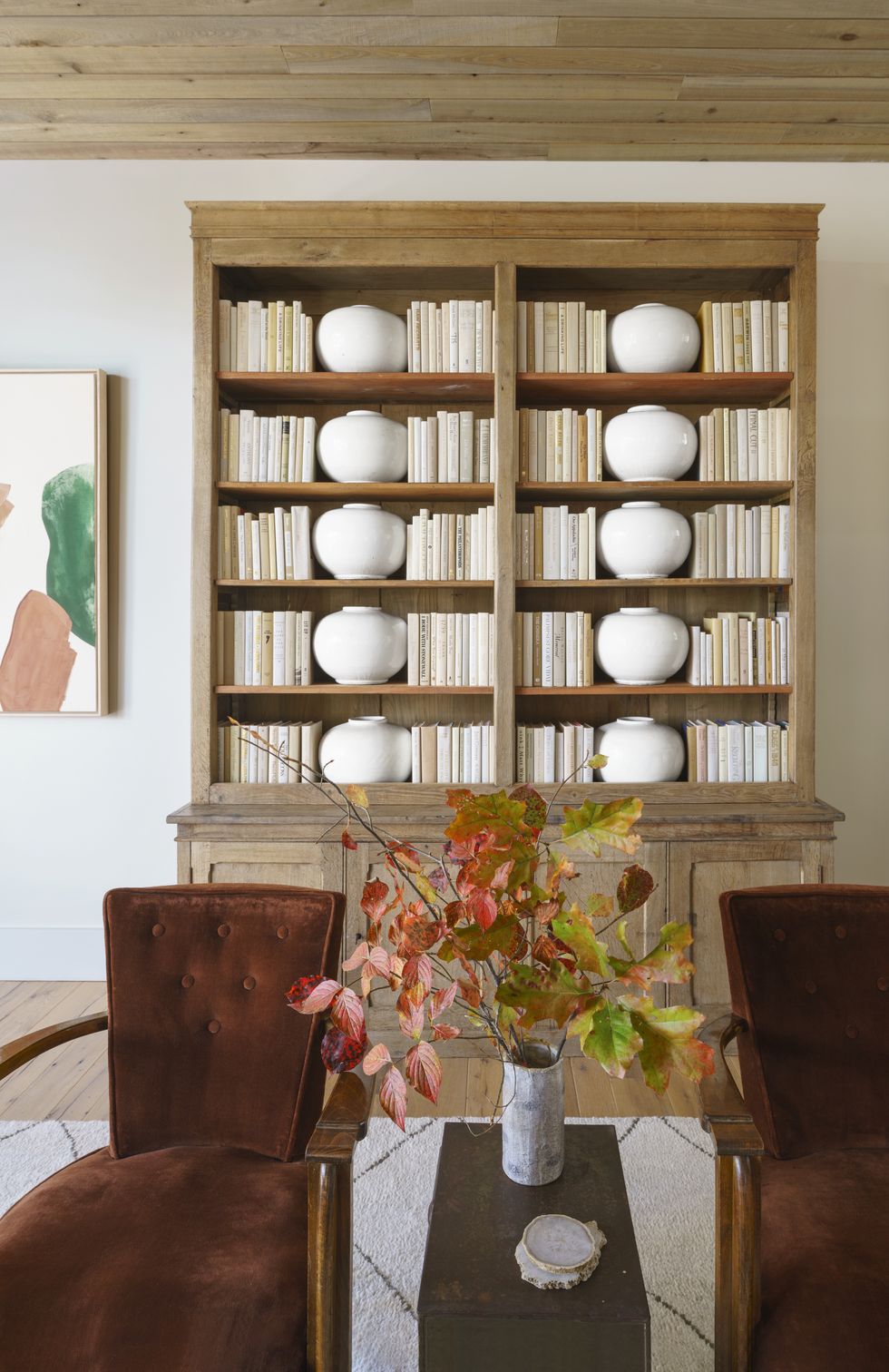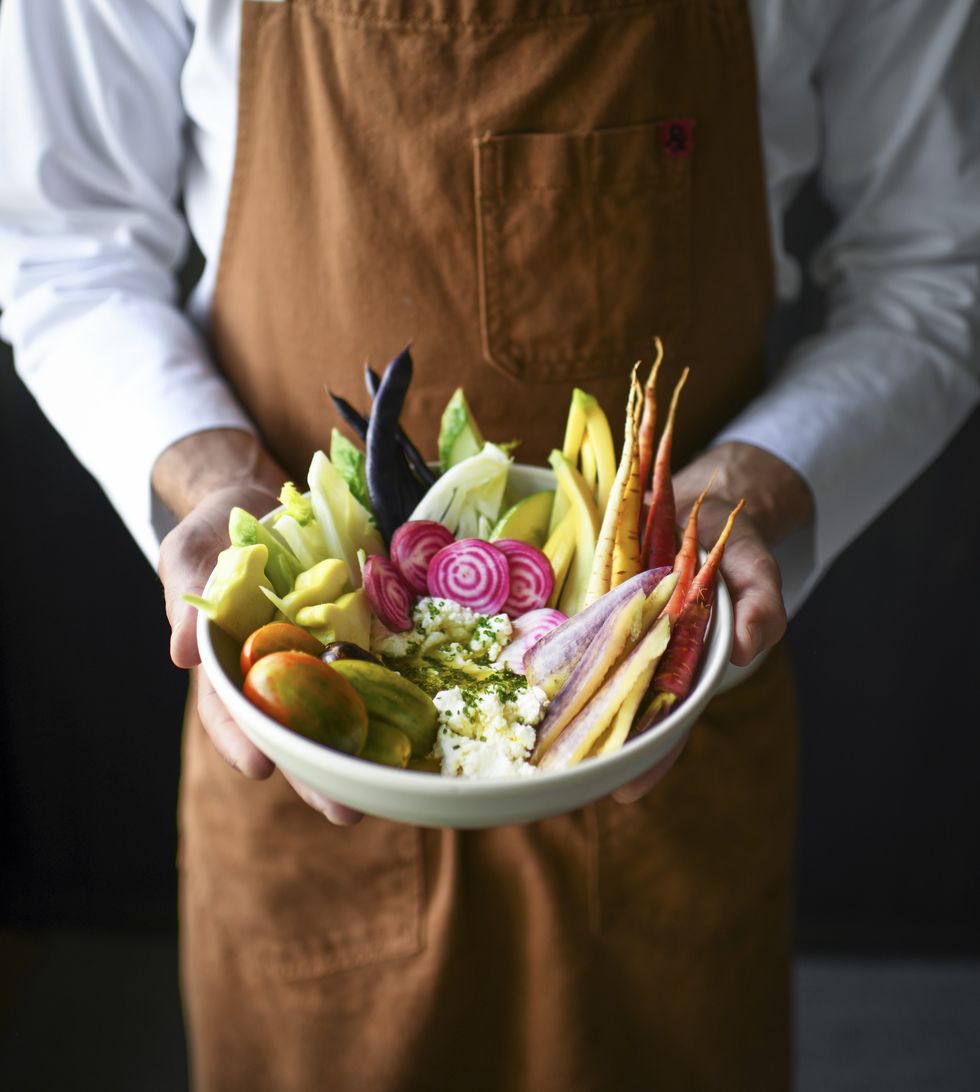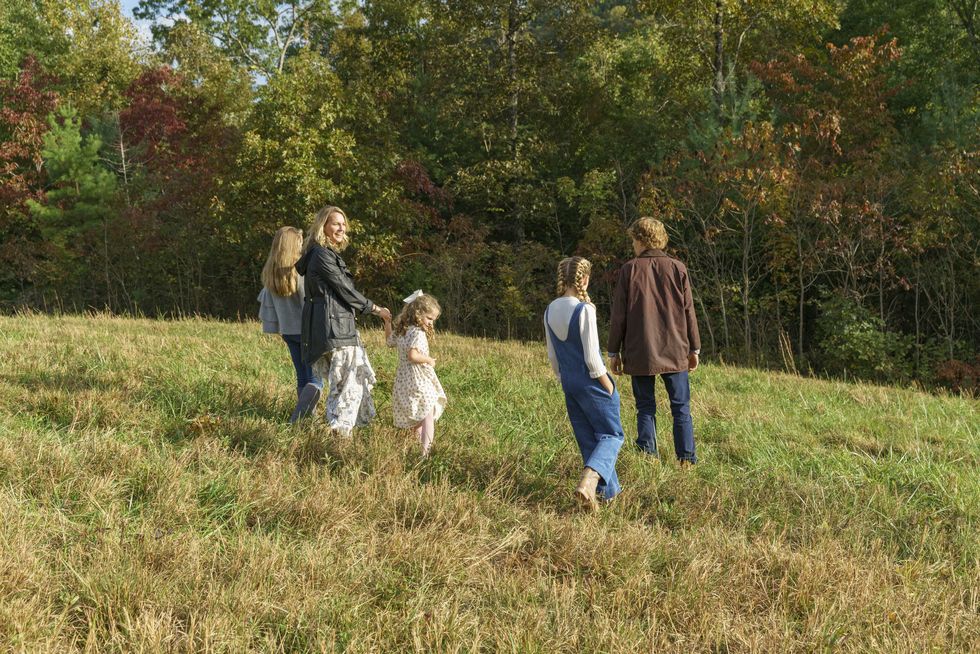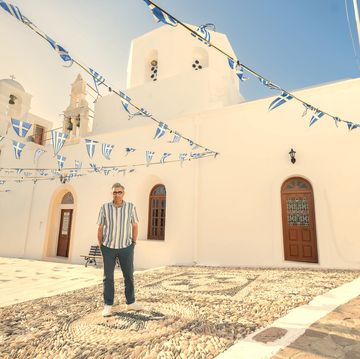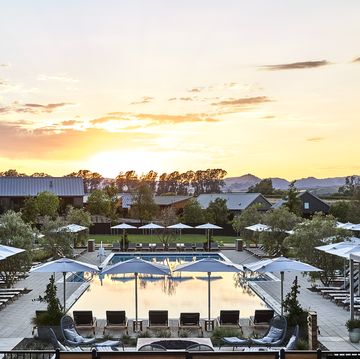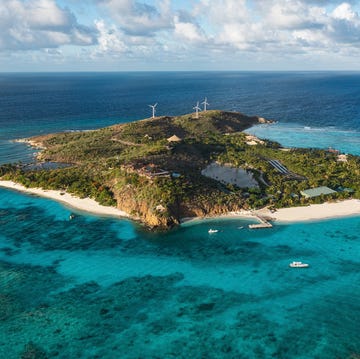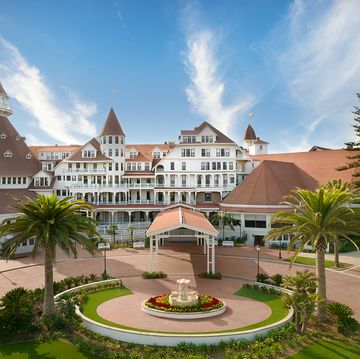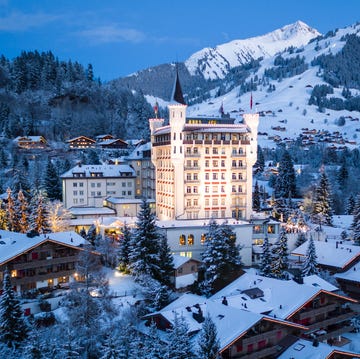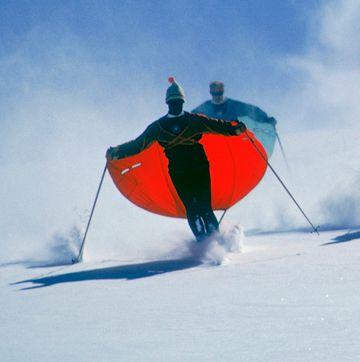Last fall, as I set out along a zigzagging trail in the Tennessee foothills of the Great Smoky Mountains, I was reminded of Wendell Berry’s description of the “curiosity and excitement” mixed with the “little nagging of dread” we experience when entering an unfamiliar place. “It is,” he wrote in his 2006 book The Unforeseen Wilderness, “the ancient fear of the Unknown, and it is your first bond with the wilderness you are going into.”
Okay, so it wasn’t as if I had been helicoptered into the high Andes. But for this urban dweller, an Appalachian temperate rainforest was enough to rouse a faint tug of dread—in a good way. Farewell, comfort zone. See you on the other side of the mountain.
Led by a couple of sure-footed local guides, I and five other weekend escapees from one big city or another began a trek across a triad of humps known as the Three Sisters, which form the eastern flank of the long Chilhowee Mountain ridge. The elevation tops out at a modest 2,800 feet, and it’s barely 30 minutes from the Knoxville airport, 10 minutes from the Foothills Parkway. Even so, the only sounds on that misty, chill morning were twigs snapping underfoot, our own huffing and puffing, and the occasional call of a jay hidden somewhere among the oaks, hickories, and tulip poplars, which were starting to show their autumn colors. No traffic noise, no ringing cell phones, no babbling newscasts.
I was getting lost in this sylvan reverie when the party came to a halt. Our lead guide, a robust 46-year-old named Boyd Hopkins, had spotted something. The conversation earlier had been about black bears and bobcats, but this was something else: a persimmon tree loaded with fruit. Hopkins split open one of the oozingly soft orange specimens and offered it around. We took turns sampling what is technically our continent’s largest berry, a bit smaller than a tennis ball. It’s used for jams and sauces, and it’s sometimes served alongside prosciutto. Captain John Smith, of Jamestown Colony and Pocahontas fame, declared the fruit “delicious as an apricot.” He was underselling it. This was pure, sweet mountain ambrosia.
The unsung persimmon was memorably described as “liquid silk” by someone who knew and loved this land and its bounty as much as anyone: Sam Beall, the late proprietor of Blackberry Farm, the celebrated Relais & Châteaux resort that made Walland, Tennessee, an international destination.
When he died in a skiing accident in Colorado in 2016, at the age of 39, the loss was felt across America’s food and hospitality communities. For years Beall (pronounced bell) had been the champion and chief visionary of this 4,200-acre mecca of modern Southern hospitality, folkways, and gastronomy, showcasing regional ingredients (including, yes, the persimmon) in a haute-rustic style of cooking they like to call Foothills Cuisine.
It was Sam’s father Sandy (founder of the Ruby Tuesday restaurant chain) and mother Kreis who bought Blackberry Farm in 1976 as a family hideaway. They began hosting private events and taking paying guests soon thereafter, but it wasn’t until 1990 that Blackberry Farm was opened to the public year-round. In the ensuing decade, they continued to scale up, transforming the property into an increasingly luxe destination, handing it off to Sam in 2002.
Trained at Thomas Keller’s French Laundry restaurant in Napa Valley, the younger Beall pushed the ambition level into the stratosphere. With the support and collaboration of his wife Mary Celeste, he made Blackberry Farm the place it is today, while the couple raised five children (now between six and 20 years old) in a home on the property.
A week or so after Sam’s death, Mary Celeste—who, like Blackberry Farm itself, is as down-to-earth as she is graceful and smart—agreed to take the reins as proprietor. What that meant was more than becoming the boss at Blackberry Farm. It was up to her to oversee the completion of a major expansion: a 5,200-acre forested domain of hiking and biking trails with deluxe lodgings dubbed Blackberry Mountain. For a few days in October my fellow hikers and I were the first lucky guinea pigs to preview the new property before it opened to the public on February 15.
Along with six small cabins and 20 green-roofed cottages, Blackberry Mountain features a handful of multibedroom houses for rent—all crafted from stone and hand-hewn wood. An outsize spa and recreation facility called the Hub offers yoga and art studios and even a basketball court. Dining options include the flagship Three Sisters restaurant in the main lodge and the more casual mountaintop Firetower, both of which serve a high-elevation, foraging-friendly iteration of Foothills Cuisine.
From Blackberry Farm it’s a meandering 20-minute drive east to Blackberry Mountain. Also a Relais & Châteaux property (the first to receive that designation before opening), Blackberry Mountain aspires to be more than a luxurious wellness vacation spot. “Quality is the word I want to be associated with,” Sam told me when I wrote about Blackberry Farm for this magazine in 2012. As I put it in that earlier story, the Appalachian Arcadia the Bealls have created is, fundamentally, a deluxe workshop in how to live.
At Blackberry Mountain that workshop expands to fully embrace the great outdoors: You can camp or fish, meditate beside a babbling creek, try cardio bungee or paddleboard yoga, “forest-bathe” amid the sounds of Chilhowee Mountain, or forage for morels and chanterelles—or a perfect wild persimmon. “I love the idea of getting people out to explore the land,” Mary Celeste told me. “They can be far away from the real world and whatever might be weighing them down. They can be connected to nature.”
In 2007 a group of families including the Bealls joined forces to buy 5,200 acres on Chilhowee for $20 million. It was the largest local land purchase since the 1930s. The original motivation, Sandy explained, was simply that “we didn’t want this land to be developed and disrupt the peace and beauty of the view.” He had explored the mountain with his father as a boy, and he wanted to preserve it for his grandchildren and future generations. Mary Celeste told me that her oldest daughter, Cameron, now a junior at the University of Georgia, inherited the adventure-loving gene: “She is an explorer—just like her dad.”
Gradually, a vision for the land came into focus. Working in collaboration with the North American Land Trust, the Bealls helped spearhead a plan that would leave at least 2,800 acres untouched forever while opening up the mountain for a wellness-centric retreat. It would honor the integrity and culture of this place while reflecting Blackberry Farm’s ideals: artisanal, hands-on, old-school yet forward-thinking.
“Sam was really involved in the vision for Blackberry Mountain,” Mary Celeste said. “He was so excited, as was I. It was something we were doing together, from scratch.”
The couple hadn’t discussed who would take over Blackberry Farm if something happened to Sam. They never considered it. Mary Celeste was in Tennessee when she received the news of his accident. “It is a completely hopeless feeling, holding your child and thinking, I have to be strong, but not being able to bring back her father and hero,” she wrote in a 2017 essay in Redbook, a bold and moving primer on grieving. At the funeral the sight of the vast Blackberry family filling the church reassured Mary Celeste that her own family would get through it. Afterward Sandy Beall told her, “You know you have to run Blackberry.”
“She has had big shoes to fill,” Boyd Hopkins said of Mary Celeste’s leadership. Sam, who was laid to rest near the tiny chapel at Blackberry Farm, was a guy who knew the names of everyone who worked for him and always had time for hello despite his own unstoppable velocity. Hopkins recalled the day Sam was pulled over by the highway patrol for doing 49 in a 45 mph zone—on his bicycle. “Sam was born with lightning in his pants,” he said.
As for Mary Celeste’s many talents, Hopkins singled out her “creative genius.” Though she has a background in accounting, her strong visual sense and passion for design have been obvious to all as she has guided Blackberry Mountain to fruition. Sandy said his daughter-in-law “has added tremendous value” to Blackberry, which he noted “will always be a multigeneration, family-led business.”
That deep familial feeling is a Blackberry signature, and it extends across the entire operation, from the Bealls to the more than 700 employees to the visitors—many of them repeat guests—whether they’re learning how to make cheese, bridling up a horse, getting a massage, talking heirloom produce with master gardener John Coykendall, or hitting the trails.
One morning, again in our hiking boots, we navigated a winding path lined with the hugest rhododendrons I’d ever seen. Hopkins led the way, inviting us to munch on sourwood leaves or horse mint. The mountain makes you pay attention—to be, pardon the phrase, in the moment. You can feel your tattered 21st-century attention span piecing itself back together as you become absorbed by a cluster of fungi or the rustle of leaves or the way a wild muscadine grape seed looks and feels like a black pearl.
“It really does force you to be present,” Mary Celeste said when I mentioned this feeling to her. “This place offers a luxurious experience, yes, but it’s about creating those little moments that aren’t explainable. It’s fun when you can surprise people and give them a moment of joy.” As our group came upon a clearing, a surprising and joyous moment erupted. There sat a 25-foot-tall sculpture, fashioned from slats of cast-off wood, of a bearded troll looking perfectly at ease in a cross-legged sukhasana yoga pose. It was a work commissioned from Danish artist Thomas Dambo. Laughter ricocheted around Chilhowee Mountain as we took turns clambering into the yogi’s lap and snapping goofy pictures. One fellow hiker, a Tennessee real estate developer and longtime Blackberry devotee, shouted, “Sam Beall would love this! This has Sam Beall written all over it!”
Our accommodations for the preview visit were the six 400-square-foot Watchman Cabins, which are built into the side of the ridge and have evocative names like Cripple Creek and John Henry. Partly constructed with wood reclaimed from a 19th-century log house, the luxe yet spare cabins are equal parts Four Seasons and Foxfire, the influential series of books on Appalachian crafts and folkways (hog smoking, chimney building) that began appearing in the back-to-the-land 1970s. In fact, the entire 12-volume series sat on a shelf in my cabin, above the Nespresso machine. The vibe throughout Blackberry Mountain is archetypal America writ anew in the language of high-end hospitality—mindful modern luxury meets Smoky Mountain tradition.
From the cabins it’s a short uphill walk to the Firetower restaurant, which offers 360-degree views from the base of the Erector Set–like Millstone Gap Lookout Tower. It’s an ideal roost for taking in a sunrise, sipping sundowners, or refueling from a morning hike, as Hopkins and I did one afternoon, enjoying a hearty lunch of heirloom grains and roasted chicken. The embodiment of the Blackberry Mountain ethos, Hopkins is a thoroughly Thoreauvian character, voraciously well read and steeped in Appalachian lore. When it comes to foothills flora, he’s the guy who can help you distinguish your dog hobble from your catbriar. “I’ve learned more about weeds in an hour and a half talking to Boyd,” Three Sisters restaurant manager Wesley Cooke told me, “than I have in my entire life.” Hopkins, who grew up on dairy farms, said he “was taught to appreciate the wild things that grow without any assistance from us.”
Thanks to him, some of those wild things, from staghorn sumac to spiceberries, make their way into Blackberry Mountain’s two restaurants. “The mountain is extremely fruitful, and we’re still learning,” said the Firetower’s chef, Joel Werner, who raved about a chicken-of-the-woods mushroom foraged on Chilhowee that weighed in at more than three pounds. Executive chef Josh Feathers, a native of East Tennessee who has fished the region’s streams and hunted its deer, presides over the main lodge’s Three Sisters restaurant, where the menu and setting skew a bit more formal. (It was not yet open during our visit.)
You won’t find puritanical, ho-hum spa food anywhere at Blackberry Mountain. Think griddle cakes with sassafras honey, spice-rubbed venison and sunchokes, or ancient grain pappardelle with walnut-mushroom bolognese—a vernacular vegetarian preparation that Werner elevates with Charlie Trotter panache. With reduced animal fats and glutens, this healthy version of Foothills Cuisine might be good for both the soul and the aorta, but all I could think about was how happy my tastebuds were.
The Firetower’s wizardly mixologist, Chelsea Mulanix, also uses foraged goodies in such cocktails as her sassafras-accented Firetower Cola, which is fueled by amaro and vermouth. She puts a woodsy spin on the margarita, swapping blackberry juice for lime and replacing tequila with smoky Hacienda de Chihuahua sotol—made from an evergreen shrub. She calls the concoction, appropriately, Uphill Climb. “I’m not sure about the term wellness for this!” one of the weekenders happily exclaimed.
At dinner, over Werner’s perfect ribeye cap, and with Mulanix’s repeat pours of grüner and grenache, our group in fact had a distinct feeling of wellness. At the end of a day at Blackberry Mountain, your limbs will feel more limber, your mind expanded, your soul refreshed, your appetites—for great food, new friends, the Unknown—reawakened. My big-town cynicism had taken a well-earned vacation.
The next day I joined a yoga session—my first—on an outdoor platform with forever views across the foothills. It’s amazing what the mountain, along with some gentle peer pressure, can do. Wellness may be the term of art, but what I was experiencing was more like wholeness.
Mary Celeste described this state of being as “the life I want to live. I want to be eating clean, getting into the fresh air, pushing beyond my comfort zone.” It’s a vision of better living reinforced by unexpected tragedy and the renewal of hope.
“I’ve learned in the past few years that I need to take care of myself,” she said. “Much of that, for me, is about being in nature and reflecting and seizing the mini-moments.”
Back at the Firetower, Hopkins readied himself for another mountaintop ramble. “Up here, there are still magical places you can stumble upon,” he said, eager to get out there and discover more. “It’s like the last breath of Eden.”
Top photo: Mary Celeste Beall picnics with four of her children (from left, Lila, Sam, Rose, and Josephine) at Blackberry Mountain. On Mary Celeste, Johanna Ortiz Dress. On Lila, Bonpoint dress.
This story appears in the March 2019 issue of Town & Country. SUBSCRIBE NOW
